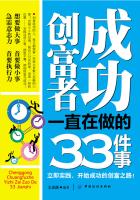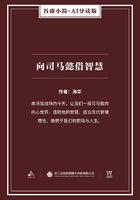If we take the steps I've just discussed, we can go a long, long way toward empowering parents to succeed at home and at work, and ensuring that no child is raised in poverty. We can make these vital investments in health care, education, support for working families, and still offer tax cuts to help pay for college, for retirement, to care for aging parents, to reduce the marriage penalty. We can do these things without forsaking the path of fiscal discipline that got us to this point here tonight.
Indeed, we must make these investments and these tax cuts in the context of a balanced budget that strengthens and extends the life of Social Security and Medicare and pays down the national debt.
Crime in America has dropped for the past seven years—that's the longest decline on record—thanks to a national consensus we helped to forge on community police, sensible gun safety laws, and effective prevention. But nobody—nobody here, nobody in America—believes we're safe enough. So again, I ask you to set a higher goal. Let's make this country the safest big country in the world.
Last fall, Congress supported my plan to hire, in addition to the 100,000 community police we've already funded, 50,000 more, concentrated in high-crime neighborhoods. I ask your continued support for that.
Soon after the Columbine tragedy, Congress considered common-sense gun legislation, to require Brady background checks at the gun shows, child safety locks for new handguns, and a ban on the importation of large-capacity ammunition clips. With courage and a tie-breaking vote by the Vice President—the Senate faced down the gun lobby, stood up for the American people, and passed this legislation. But the House failed to follow suit.
Now, we have all seen what happens when guns fall into the wrong hands. Daniel Mauser was only 15 years old when he was gunned down at Columbine. He was an amazing kid , a straight-A student, a good skier. Like all parents who lose their children, his father Tom has borne unimaginable grief. Somehow he has found the strength to honor his son by transforming his grief into action. Earlier this month, he took a leave of absence from his job to fight for tougher gun safety laws. I pray that his courage and wisdom will at long last move this Congress to make common-sense gun legislation the very next order of business.Tom Mauser, stand up. We thank you for being here tonight. Tom. Thank you, Tom.
We must strengthen our gun laws and enforce those already on the books better. Federal gun crime prosecutions are up 16 percent since I took office. But we must do more. I propose to hire more federal and local gun prosecutors and more ATF agents to crack down on illegal gun traffickers and bad-apple dealers. And we must give them the enforcement tools that they need, tools to trace every gun and every bullet used in every gun crime in the United States. I ask you to help us do that.
Every state in this country already requires hunters and automobile drivers to have a license. I think they ought to do the same thing for handgun purchases. Now, specifically, I propose a plan to ensure that all new handgun buyers must first have a photo license from their state showing they passed the Brady background check and a gun safety course, before they get the gun. I hope you'll help me pass that in this Congress.
Listen to this—listen to this. The accidental gun rate—the accidental gun death rate of children under 15 in the United States is nine times higher than in the other 25 industrialized countries combined. Now, technologies now exist that could lead to guns that can only be fired by the adults who own them. I ask Congress to fund research into smart gun technology, to save these children's lives. (Applause.) I ask responsible leaders in the gun industry to work with us on smart guns, and other steps to keep guns out of the wrong hands, to keep our children safe.
You know, every parent I know worries about the impact of violence in the media on their children. I want to begin by thanking the entertainment industry for accepting my challenge to put voluntary ratings on TV programs and video and Internet games. But, frankly, the ratings are too numerous, diverse and confusing to be really useful to parents. So tonight, I ask the industry to accept the First Lady's challenge to develop a single voluntary rating system for all children's entertainment that is easier for parents to understand and enforce. The steps I outline will take us well on our way to ****** America the safest big country in the world.
Now, to keep our historic economic expansion going—the subject of a lot of discussion in this community and others—I believe we need a 21st century revolution to open new markets, start new businesses, hire new workers right here in America—in our inner cities, poor rural areas, and Native American reservations.
Our nation's prosperity hasn't yet reached these places. Over the last six months, I've traveled to a lot of them, joined by many of you, and many far-sighted business people, to shine a spotlight on the enormous potential in communities from Appalachia to the Mississippi Delta, from Watts to the Pine Ridge Reservation. Everywhere I go, I meet talented people eager for opportunity, and able to work. Tonight I ask you, let's put them to work.For business, it's the smart thing to do. For America, it's the right thing to do. And let me ask you something—if we don't do this now, when in the wide world will we ever get around to it?
So I ask Congress to give businesses the same incentives to invest in America's new markets they now have to invest in markets overseas. Tonight, I propose a large New Markets tax credit and other incentives to spur $22 billion in private-sector capital to create new businesses and new investments in our inner cities and rural areas.
Because empowerment zones have been creating these opportunities for five years now, I also ask you to increase incentives to invest in them and to create more of them.
And let me say to all of you again what I have tried to say at every turn—this is not a Democratic or a Republican issue. Giving people a chance to live their dreams is an American issue.
Mr. Speaker, it was a powerful moment last November when you joined Reverend Jesse Jackson and me in your home state of Illinois, and committed to working toward our common goal, by combining the best ideas from both sides of the aisle. I want to thank you again, and to tell you, Mr. Speaker, I look forward to working with you. This is a worthy, joint endeavor. Thank you.
I also ask you to make special efforts to address the areas of our nation with the highest rates of poverty—our Native American reservations and the Mississippi Delta. My budget includes $110-million initiative to promote economic development in the Delta, and a billion dollars to increase economic opportunity, health care, education and law enforcement for our Native American communities. In this new century—we should begin this new century by honoring our historic responsibility to empower the first Americans. And I want to thank tonight the leaders and the members from both parties who've expressed to me an interest in working with us on these efforts. They are profoundly important.
There's another part of our American community in trouble tonight—our family farmers. When I signed the Farm Bill in 1996, I said there was great danger it would work well in good times, but not in bad. Well, droughts, floods, and historically low prices have made these times very bad for the farmers. We must work together to strengthen the farm safety net, invest in land conservation, and create some new markets for them by expanding our programs for bio-based fuels and products. Please, they need help—let's do it together.
Opportunity for all requires something else today—having access to a computer and knowing how to use it. That means we must close the digital divide between those who've got the tools and those who don't.
Connecting classrooms and libraries to the Internet is crucial, but it's just a start. My budget ensures that all new teachers are trained to teach 21st century skills, and it creates technology centers in 1,000 communities to serve adults. This spring, I'll invite high-tech leaders to join me on another New Markets tour, to close the digital divide and open opportunity for our people.
I want to thank the high-tech companies that already are doing so much in this area. I hope the new tax incentives I have proposed will get all the rest of them to join us. This is a national crusade. We have got to do this, and do it quickly.
Now, again I say to you, these are steps, but step by step, we can go a long way toward our goal of bringing opportunity to every community.
To realize the full possibilities of this economy, we must reach beyond our own borders, to shape the revolution that is tearing down barriers and building new networks among nations and individuals, and economies and cultures: globalization. It's the central reality of our time.
Of course, change this profound is both liberating and threatening to people. But there's no turning back. And our open, creative society stands to benefit more than any other—if we understand, and act on, the realities of interdependence. We have to be at the center of every vital global network, as a good neighbor and a good partner. We have to recognize that we cannot build our future without helping others to build theirs.
The first thing we have got to do is to forge a new consensus on trade. Now, those of us who believe passionately in the power of open trade, we have to ensure that it lifts both our living standards and our values, never tolerating abusive child labor or a race to the bottom in the environment and worker protection. But others must recognize that open markets and rule-based trade are the best engines we know of for raising living standards, reducing global poverty and environmental destruction, and assuring the free flow of ideas.
I believe as strongly tonight as I did the first day I got here, the only direction forward for America on trade—the only direction for America on trade is to keep going forward. I ask you to help me forge that consensus.
We have to make developing economies our partners in prosperity. That's why I would like to ask you again to finalize our groundbreaking African and Caribbean Basin trade initiatives.
But globalization is about more than economics. Our purpose must be to bring together the world around ******* and democracy and peace, and to oppose those who would tear it apart. Here are the fundamental challenges I believe America must meet to shape the 21st century world.
First, we must continue to encourage our former adversaries, Russia and China, to emerge as stable, prosperous, democratic nations. Both are being held back today from reaching their full potential: Russia by the legacy of communism, an economy in turmoil, a cruel and self-defeating war in Chechnya; China by the illusion that it can buy stability at the expense of *******.
But think how much has changed in the past decade: 5,000 former Soviet nuclear weapons taken out of commission; Russian soldiers actually serving with ours in the Balkans; Russian people electing their leaders for the first time in a thousand years; and in China, an economy more open to the world than ever before.
Of course, no one, not a single person in this chamber tonight, can know for sure what direction these great nations will take. But we do know for sure that we can choose what we do. And we should do everything in our power to increase the chance that they will choose wisely, to be constructive members of our global community.
That's why we should support those Russians who are struggling for a democratic, prosperous future; continue to reduce both our nuclear arsenals; and help Russia to safeguard weapons and materials that remain.
And that's why I believe Congress should support the agreement we negotiated to bring China into the WTO, by passing Permanent Normal Trade Relations with China as soon as possible this year.
I think you ought to do it for two reasons. First of all, our markets are already open to China; this agreement will open China's markets to us. And, second, it will plainly advance the cause of peace in Asia and promote the cause of change in China. No, we don't know where it's going. All we can do is decide what we're going to do. But when all is said and done, we need to know we did everything we possibly could to maximize the chance that China will choose the right future.
A second challenge we've got is to protect our own security from conflicts that pose the risk of wider war and threaten our common humanity. We can't prevent every conflict or stop every outrage. But where our interests are at stake and we can make a difference, we should be, and we must be, peacemakers.
We should be proud of our role in bringing the Middle East closer to a lasting peace; building peace in Northern Ireland; working for peace in East Timor and Africa; promoting reconciliation between Greece and Turkey and in Cyprus; working to defuse these crises between India and Pakistan; in defending human rights and religious *******. And we should be proud of the men and women of our Armed Forces and those of our allies who stopped the ethnic cleansing in Kosovo, enabling a million people to return to their homes.
When Slobodan Milosevic unleashed his terror on Kosovo, Captain John Cherrey was one of the brave airmen who turned the tide. And when another American plane was shot down over Serbia, he flew into the teeth of enemy air defenses to bring his fellow pilot home. Thanks to our Armed Forces' skill and bravery, we prevailed in Kosovo without losing a single American in combat. I want to introduce Captain Cherrey to you. We honor Captain Cherrey, and we promise you, Captain, we'll finish the job you began. Stand up so we can see you.
A third challenge we have is to keep this inexorable march of technology from giving terrorists and potentially hostile nations the means to undermine our defenses. Keep in mind, the same technological advances that have shrunk cell phones to fit in the palms of our hands can also make weapons of terror easier to conceal and easier to use.
We must meet this threat by ****** effective agreements to restrain nuclear and missile programs in North Korea; curbing the flow of lethal technology to Iran; preventing Iraq from threatening its neighbors; increasing our preparedness against chemical and biological attack; protecting our vital computer systems from hackers and criminals; and developing a system to defend against new missile threats—while working to preserve our ABM missile treaty with Russia. We must do all these things.
I predict to you, when most of us are long gone, but some time in the next 10 to 20 years, the major security threat this country will face will come from the enemies of the nation state: the narco-traffickers and the terrorists and the organized criminals, who will be organized together, working together, with increasing access to ever-more sophisticated chemical and biological weapons.
And I want to thank the Pentagon and others for doing what they're doing right now to try to help protect us and plan for that, so that our defenses will be strong. I ask for your support to ensure they can succeed.
I also want to ask you for a constructive bipartisan dialogue this year to work to build a consensus which I hope will eventually lead to the ratification of the Comprehensive Nuclear Test Ban Treaty.
I hope we can also have a constructive effort to meet the challenge that is presented to our planet by the huge gulf between rich and poor. We cannot accept a world in which part of humanity lives on the cutting edge of a new economy, and the rest live on the bare edge of survival. I think we have to do our part to change that—with expanded trade, expanded aid, and the expansion of *******.
This is interesting—from Nigeria to Indonesia, more people got the right to choose their leaders in 1999 than in 1989, when the Berlin Wall fell. We've got to stand by these democracies—including, and especially tonight, Colombia, which is fighting narco-traffickers, for its own people's lives and our children's lives. I have proposed a strong two-year package to help Colombia win this fight. I want to thank the leaders in both parties in both Houses for listening to me and the President of Colombia about it. We have got to pass this. I want to ask your help. A lot is riding on it. And it's so important for the long-term stability of our country, and for what happens in Latin America.
I also want you to know I'm going to send you new legislation to go after what these drug barons value the most—their money. And I hope you'll pass that as well.
In a world where over a billion people live on less than a dollar a day, we also have got to do our part in the global endeavor to reduce the debts of the poorest countries, so they can invest in education, health care and economic growth. That's what the Pope and other religious leaders have urged us to do. And last year, Congress made a down payment on America's share. I ask you to continue that. I thank you for what you did, and ask you to stay the course.
I also want to say that America must help more nations to break the bonds of disease. Last year in Africa, 10 times as many people died from AIDS as were killed in wars—10 times. The budget I give you invests $150 million more in the fight against this and other infectious killers. And today, I propose a tax credit to speed the development of vaccines for diseases like malaria, TB and AIDS. I ask the private sector and our partners around the world to join us in embracing this cause. We can save millions of lives together, and we ought to do it.
I also want to mention our final challenge, which, as always, is the most important. I ask you to pass a national security budget that keeps our military the best-trained and best-equipped in the world, with heightened readiness and 21st century weapons; which raises salaries for our servicemen and women; which protects our veterans; which fully funds the diplomacy that keeps our soldiers out of war; which makes good on our commitment to pay our U.N. dues and arrears. I ask you to pass this budget.
I also want to say something, if I might, very personal tonight. The American people watching us at home, with the help of all the commentators, can tell from who stands and who sits, and who claps and who doesn't, that there's still modest differences of opinion in this room. But I want to thank you for something, every one of you. I want to thank you for the extraordinary support you have given—Republicans and Democrats alike—to our men and women in uniform. I thank you for that.
I also want to thank, especially, two people. First, I want to thank our Secretary of Defense, Bill Cohen, for symbolizing our bipartisan commitment to national security. Thank you, sir. Even more, I want to thank his wife, Janet, who, more than any other American citizen, has tirelessly traveled this world to show the support we all feel for our troops. Thank you, Janet Cohen. I appreciate that. Thank you.
These are the challenges we have to meet so that we can lead the world toward peace and ******* in an era of globalization.
I want to tell you that I am very grateful for many things as President. But one of the things I'm grateful for is the opportunity that the Vice President and I have had to finally put to rest the bogus idea that you cannot grow the economy and protect the environment at the same time.
As our economy has grown, we've rid more than 500 neighborhoods of toxic waste, ensured cleaner air and water for millions of people. In the past three months alone, we've helped preserve 40 million acres of roadless lands in the national forests, created three new national monuments.
But as our communities grow, our commitment to conservation must continue to grow. Tonight, I propose creating a permanent conservation fund, to restore wildlife, protect coastlines, save natural treasures, from the California redwoods to the Florida Everglades.
This Lands Legacy endowment would represent by far the most enduring investment in land preservation ever proposed in this House. I hope we can get together with all the people with different ideas and do this. This is a gift we should give to our children and our grandchildren for all time, across party lines. We can make an agreement to do this.
Last year, the Vice President launched a new effort to make communities more liberal—livable—liberal, I know. Wait a minute, I've got a punchline now. That's this year's agenda; last year was livable, right? That's what Senator Lott is going to say in the commentary afterwards. To make our communities more livable. This is big business. This is a big issue. What does that mean? You ask anybody that lives in an unlivable community, and they'll tell you. They want their kids to grow up next to parks, not parking lots; the parents don't have to spend all their time stalled in traffic when they could be home with their children.
Tonight, I ask you to support new funding for the following things, to make American communities for liberal—livable. I've done pretty well with this speech, but I can't say that.
One, I want you to help us to do three things. We need more funding for advanced transit systems. We need more funding for saving open spaces in places of heavy development. And we need more funding—this ought to have bipartisan appeal—we need more funding for helping major cities around the Great Lakes protect their waterways and enhance their quality of life. We need these things and I want you to help us.
The greatest environmental challenge of the new century is global warming. The scientists tell us the 1990s were the hottest decade of the entire millennium. If we fail to reduce the emission of greenhouse gases, deadly heat waves and droughts will become more frequent, coastal areas will flood, and economies will be disrupted. That is going to happen, unless we act.
Many people in the United States—some people in this chamber—and lots of folks around the world still believe you cannot cut greenhouse gas emissions without slowing economic growth. In the Industrial Age that may well have been true. But in this digital economy, it is not true anymore. New technologies make it possible to cut harmful emissions and provide even more growth.
For example, just last week, automakers unveiled cars that get 70 to 80 miles a gallon—the fruits of a unique research partnership between government and industry. And before you know it, efficient production of bio-fuels will give us the equivalent of hundreds of miles from a gallon of gasoline.
To speed innovation in these kind of technologies, I think we should give a major tax incentive to business for the production of clean energy, and to families for buying energy-saving homes and appliances and the next generation of super-efficient cars when they hit the showroom floor. I also ask the auto industry to use the available technologies to make all new cars more fuel-efficient right away.
And I ask this Congress to do something else. Please help us make more of our clean energy technology available to the developing world. That will create cleaner growth abroad and a lot more new jobs here in the United States of America.
In the new century, innovations in science and technology will be the key not only to the health of the environment, but to miraculous improvements in the quality of our lives and advances in the economy. Later this year, researchers will complete the first draft of the entire human genome, the very blueprint of life. It is important for all our fellow Americans to recognize that federal tax dollars have funded much of this research, and that this and other wise investments in science are leading to a revolution in our ability to detect, treat, and prevent disease.
For example, researchers have identified genes that cause Parkinson's, diabetes, and certain kinds of cancer—they are designed precision therapies that will block the harmful effect of these genes for good. Researchers already are using this new technique to target and destroy cells that cause breast cancer. Soon, we may be able to use it to prevent the onset of Alzheimer's. Scientists are also working on an artificial retina to help many blind people to see—and listen to this—microchips that would actually directly stimulate damaged spinal cords in a way that could allow people now paralyzed to stand up and walk.














